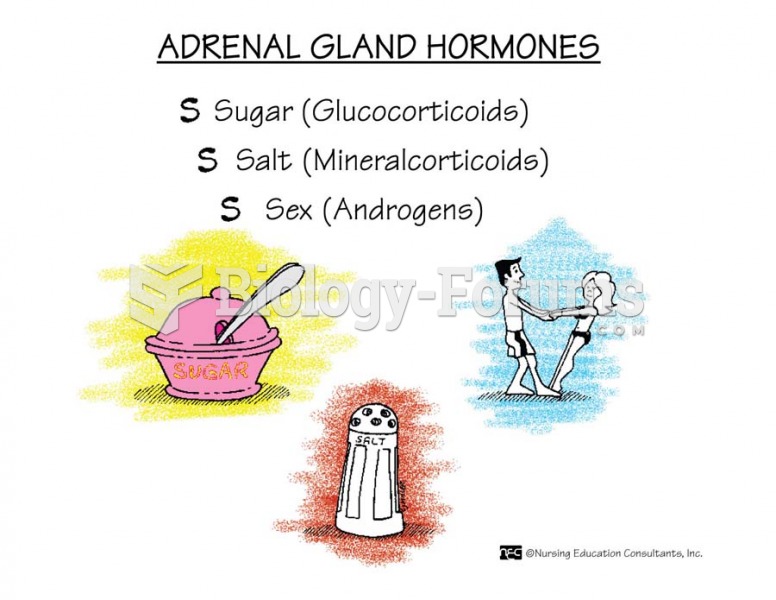This topic contains a solution. Click here to go to the answer
|
|
|
Did you know?
The Romans did not use numerals to indicate fractions but instead used words to indicate parts of a whole.
Did you know?
On average, the stomach produces 2 L of hydrochloric acid per day.
Did you know?
A seasonal flu vaccine is the best way to reduce the chances you will get seasonal influenza and spread it to others.
Did you know?
Although not all of the following muscle groups are commonly used, intramuscular injections may be given into the abdominals, biceps, calves, deltoids, gluteals, laterals, pectorals, quadriceps, trapezoids, and triceps.
Did you know?
When blood is exposed to air, it clots. Heparin allows the blood to come in direct contact with air without clotting.
 Comparison of breast cancer and fibrocystic disease. (A) Breast with a malignant tumor growing in th
Comparison of breast cancer and fibrocystic disease. (A) Breast with a malignant tumor growing in th
 The postoperative client supports an incision with a folded pillow when taking a deep breath and cou
The postoperative client supports an incision with a folded pillow when taking a deep breath and cou





